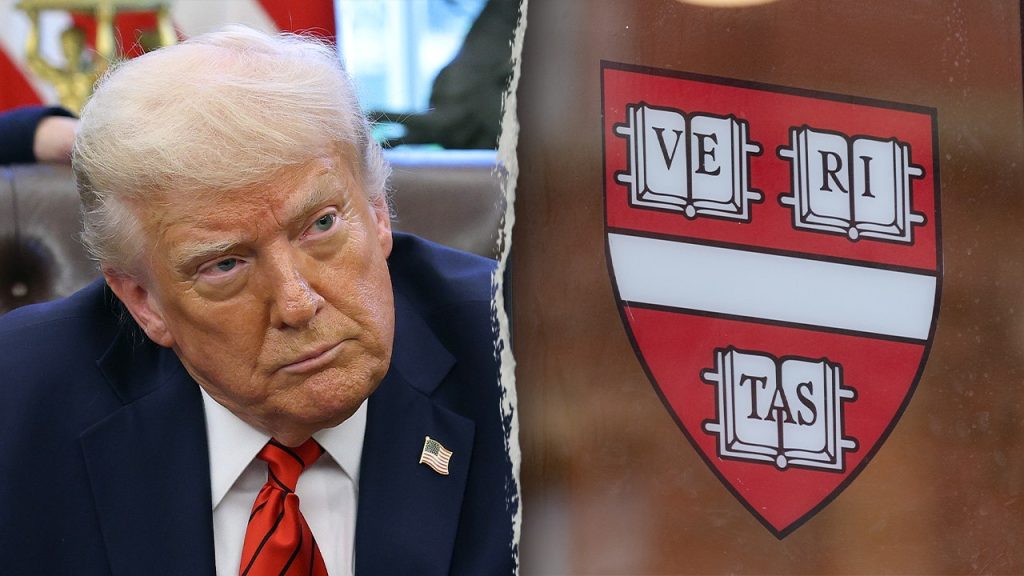In a significant move to support its international student community, Harvard University, in collaboration with the University of Toronto, has unveiled a contingency plan that allows select international graduate students to continue their education in Canada, amidst potential visa challenges posed by the Trump administration. This plan comes in light of recent decisions by the U.S. Department of Homeland Security, which has attempted to restrict Harvard’s ability to enroll international students. Although a federal judge has temporarily blocked these restrictions, the initiative aims to alleviate uncertainties faced by affected students.
| Article Subheadings |
|---|
| 1) Collaborative Efforts between Harvard and the University of Toronto |
| 2) The Impacts of U.S. Visa Policies |
| 3) Details of the Contingency Plan |
| 4) Responses from University Officials |
| 5) The Broader Context of International Education |
Collaborative Efforts between Harvard and the University of Toronto
Harvard University, one of the leading educational institutions in the world, has joined forces with the University of Toronto to create a proactive measure for its international students who may be adversely affected by recent U.S. visa policies. This collaboration represents a significant step toward ensuring that graduate students can maintain their educational trajectory and access the resources necessary for their studies, even in the face of immigration challenges. The announcement reflects both universities’ commitment to fostering a global academic community.
The Impacts of U.S. Visa Policies
Recent actions taken by the U.S. Department of Homeland Security have raised alarms within academic communities. The agency’s intention to terminate Harvard’s ability to enroll international students stemmed from demands for comprehensive records regarding student visa holders’ behavior, including their involvement in protests. While a federal court has intervened to block these restrictions for now, uncertainty lingers for many students who may face challenges in securing their visa status. The implications of such policies may inhibit a vital influx of diverse perspectives and experiences that international students bring, potentially stifling academic innovation and discourse.
Details of the Contingency Plan
The jointly offered program will permit Harvard’s international students who have completed one academic year at the university to study at the University of Toronto. This visiting student program will integrate courses taught by faculty from both institutions, thereby providing a robust educational experience that mirrors what students would typically receive at Harvard. The deans of both schools asserted that this plan serves as a safety net for students, assuring them that their pursuit of education will not be interrupted, provided there is sufficient demand for the program in response to potential visa troubles.
Responses from University Officials
Harvard Kennedy School Dean Jeremy Weinstein emphasized the importance of maintaining educational access for students facing visa uncertainties. “With these contingency plans in place, HKS will be able to continue to provide a world-class public policy education to all of our students, even if they cannot make it to our campus this year,” he stated. This proactive approach reflects a deep concern for the academic futures of students who might otherwise be at risk due to bureaucratic hurdles. At the same time, the partnership with the University of Toronto represents a substantial investment in preserving the educational mission amid external pressures.
The Broader Context of International Education
Over the past five years, international students have constituted over 50% of total enrollment at Harvard’s Kennedy School. This highlights the institution’s commitment to an inclusive and diverse academic environment. The ongoing political and financial pressures—from substantial proposed increases to endowment taxes to federal cuts in research funding—further complicate the situation for universities. As institutions draw international talent that contributes to their research and discourse, the challenges posed by restrictive visa policies may lead to broader ramifications for educational systems across the United States. The importance of maintaining open channels for international students cannot be overstated, as their contributions enrich the academic fabric of universities.
| No. | Key Points |
|---|---|
| 1 | Harvard and the University of Toronto have developed a contingency plan for international graduate students. |
| 2 | U.S. visa policies create uncertainty for international students at Harvard. |
| 3 | The visiting student program allows students to continue their education if they face visa troubles. |
| 4 | University officials underscore the importance of maintaining educational access for all students. |
| 5 | International students represent a crucial component of the academic community at Harvard. |
Summary
In light of increasing pressures from U.S. governmental policies affecting international education, Harvard University, alongside the University of Toronto, has implemented a contingency plan designed to protect its international graduate students. This strategic collaboration reflects a commitment to academic accessibility and inclusivity, ensuring that students can continue their studies without interruption, even in the face of potential visa challenges. As the discussion surrounding international education intensifies, these measures highlight the importance of maintaining a diverse educational environment within prestigious institutions.
Frequently Asked Questions
Question: What is the contingency plan for international students at Harvard?
The contingency plan allows selected international graduate students at Harvard to continue their education by participating in a visiting student program at the University of Toronto, in case they face challenges with their U.S. visas.
Question: Why did the U.S. Department of Homeland Security take action against Harvard?
The U.S. Department of Homeland Security moved to terminate Harvard’s ability to enroll international students due to requests for extensive records about student visa holders, including behavioral records and involvement in protests.
Question: How has international enrollment been affected at Harvard?
International students make up over 50% of the enrollment at Harvard’s Kennedy School, showcasing the importance of global diversity in academic settings and potential impacts of restrictive policies on the institution.


